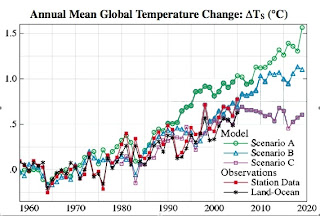Some background. educational acts of the various state parliaments indicated education in australia should be 'secular'. It made provision for General Religious Education - where a teacher could provide information about a range of religious beliefs. Later legislation introduced the concept of Special Religious Instruction or Special Religious Education. This is an optional time where religious groups can offer accredited volunteers to educate students about specific religious tenets and beliefs.
The insight programme focussed on a trial in the NSW education system of an ethics class as an alternative to special religious education. Religious is a polarising issue, and this can be seen in the commentary. Eg Here and Here.
I am an athiest, and I believe in a secular society. My beliefs are but one of the range of beliefs students can adopt. I am not averse to students being exposed to the details of multiple religions. I also want an athiest view point put forward.
How can this be possible in the legislation. I am from Victoria, so I will use our legislation: The education and Training Reform Act 2006. Section 2.2.10 covers 'general religious education' and section 2.2.11 covers special religious instruction.
SRI says: "the persons providing the special religious instruction must be persons who are accredited representatives of churches or other religious groups and who are approved by the Minister for the purpose"
and "(5) In this section special religious instruction means instruction provided by churches and other religious groups and based on distinctive religious tenets and beliefs."
How best to achieve my objectives within this framework?
Option 1: Find a set of accredited people in as many religions as are in Australia, and get them into schools. This goes with the spirit of the legisliation, and for me, ensures there's a pluralist, secular nature to the SRI class.
Option 2: Get an Ethics class as an alternative. How can ethics fit? It's not "distinctive religious tenets and beliefs" right? Well, it could be: Let's check the dictionary:
1.
a. Belief in and reverence for a supernatural power or powers regarded as creator and governor of the universe.
b. A personal or institutionalized system grounded in such belief and worship.
2. The life or condition of a person in a religious order.
3. A set of beliefs, values, and practices based on the teachings of a spiritual leader.
4. A cause, principle, or activity pursued with zeal or conscientious devotion.
I like 4 here. It's about the cause, principle etc. This is about a different approach to dealing with life. It's complementary - you can take a spiritual view, but you need to also take a reasoned view. There is strident belief that this is important. It's up to you if you augment with a spiritual aspect. So, let's ensure ethics can enter the class. If you're not learning to reason with religious beliefs, you should be able to reason with ethicial approaches.
Hence get ethics class defined as special religious tenets or beliefs, and put it up for SRI. Pragmatically - this is a long shot. It's about a lot of red tape, argument, policy change etc. Very hard to do.
Let's go back to option 1. It's about getting a series of classes ( a curriculum) that is acceptable. Then getting enough people accreddited and available in all locations to give that curriculum. I think that takes money. we need to approach enough religions and have a representative trained and available.
So that's my take - fight it, or deflect it. either way, the secular spirit must hold true.
What do you think?

